Why I Went On Accutane In My 30s
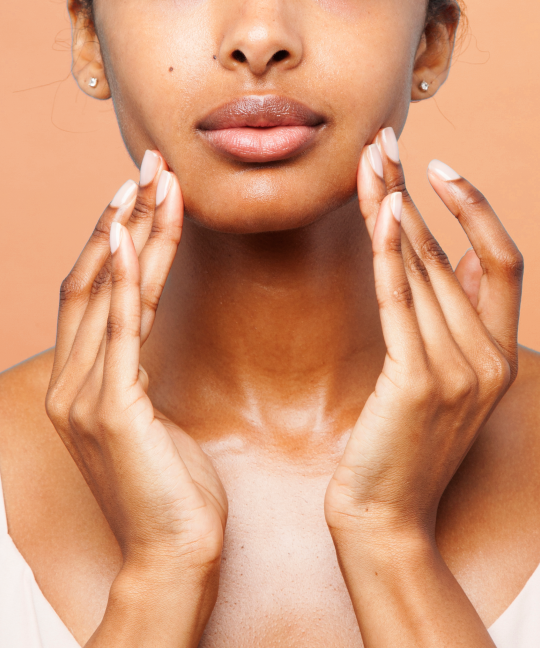
Illustrations by Ellliot Salzar.
Accutane: It’s one of the most singularly contentious words in the skin-care conversation, both feared and praised. That’s because the drug is both potent and potentially dangerous — and just happens to be the savior for those with severe cystic acne.
Related: The BEST Way To Get Rid Of Acne Scars
Accutane is the brand name for a drug called isotretinoin — a vitamin A-derivative. It was approved in 1982 for the treatment of severe acne that is unresponsive to conventional methods like topical medication and oral antibiotics. In 2009, the company behind Accutane pulled the drug from the market for unspecific economic reasons. So while we still call isotretinoin drugs Accutane, that actual name-brand drug does not exist anymore. Instead, you can be prescribed Absorica, Claravis, Myorisan, Amnesteem, or Zenatane. According to dermatologist Dennis Gross, MD, isotretinoin is the “closest thing to a cure [for acne that] we have.“
Related: Here’s Your Dream Sephora Starter Kit
“What Accutane is doing is destroying the [oil] glands that cause acne,” says Dr. Gross. He explains that in people with acne, 80 to 90% of the oil glands on the face are healthy and functioning. But 10 to 20% are “sick” and overproducing oil. Accutane targets the cells where acne keeps coming back over and over again and kills them off.
Now, all of this sounds very straightforward and sensible. However, it’s not that simple. Bring up the drug to anyone who had or has acne, and you’re bound to get a response of either, “It changed my life,” or, “Oh my god, do NOT go on that poison.” With possible side effects that range from depression to birth defects, it’s understandable why people have such a visceral reaction to it. I, however, am not one of those people. After a year and a half of suffering through the most brutal cystic acne my face had ever come up against, I didn’t hesitate when Dr. Gross brought up the drug.
Related: The Craziest Beauty Routines Of The Rich & Famous
But besides the “don’t get pregnant — no, seriously, don’t” caution you hear repeatedly, I knew very little about what being on Accutane actually entails. With that in mind, I put together a diary documenting my experience, with all the nitty, very gritty, and sometimes TMI tidbits that everyone thinking about Accutane should absolutely know.
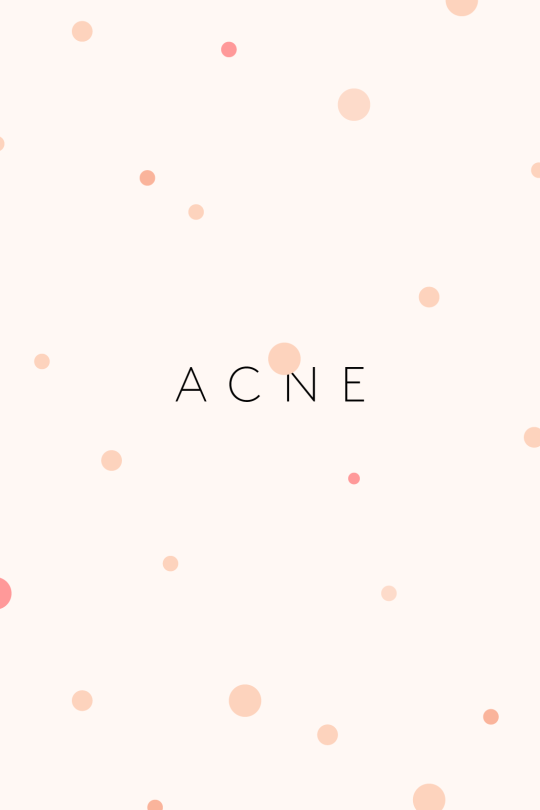
I’ve already written quite extensively about my skin — it’s hard not to when it suddenly goes down the crapper at the age of 32. To recap, I spent a blissful 16 zit-free years on birth control, was then told I needed to ditch the estrogen due to migraines, and then shit got crazy. My neck, jawline, back, arms, shoulders, and cheeks suddenly sprouted red, angry, painful welts that would hang around for days, sometimes weeks.
I’m not usually the girl who is self-conscious about going out into the world sans makeup — if I’ve got a zit, I’ve got a zit. This was different — I had to put on makeup in order to feel human. I found myself hiding behind my hair, or constantly staring at the ground, shooting furtive glances at those walking by me and wondering how badly I repulsed them. I went to a dark place.
Related: This Is What Female-Directed Porn Looks Like
As a beauty editor, I have both the knowledge and the access to pretty much every skin service and product under the sun. And I took full advantage of that. I did monthly dermatologist appointments, and tried all of the topicals, antibiotics, microneedling, acupuncture, cupping, and excruciating extractions I could tolerate, all with no results. I even cut out dairy, caffeine, sugar, and gluten. I turn into Lewis Black when denied cheese, so it was a fun three months for my coworkers.
It was at this point that I made the executive decision to bring in the heavy artillery: Dr. Gross. He had helped me through a tough bout of stress acne before my wedding, and I knew if anyone had the answer, it would be him.
After examining my skin and hearing my saga of treatment failures, he mentioned Accutane. He told me that based on the severity of my acne (moderate to severe), the location of the cysts, and the confluence of blackheads and blocked pores, Accutane was going to be my best shot — the Hail Mary, if you will — at clearing my skin.
Related: Glow International With These Asian Beauty Products
“You never go right to Accutane,” says Dr. Gross. “You use the things that were used to treat acne before the advent of Accutane: topicals like the creams and gels, solutions, oral antibiotics. If they fail, then you get a candidate who is eligible for Accutane.” A.k.a. me.
While I was about 95% sure I was going to go on the drug, I had seen some of those fervent debates in our comments section, especially people saying they endured torture only to have their acne come back. “For the patients that use the proper dosage and stay on it the proper length of time, Accutane has a cure rate of 70%,” explains Dr. Gross. Out of the 30% who don’t respond to the first round, after a second round, 70% will be cured. That’s a success rate of 91% of patients total through one or two rounds of treatment. And if you’re unfortunate enough to be in that small percentage, Dr. Gross does say that at the very least, your acne will be less severe. Silver lining?
To be clear, notes Dr. Gross, “cured” means you won’t get pimples again. Ever. I made him repeat that statement because I thought I had misheard him. How is that even possible? What is pimple-free life actually like?
I started casually dropping the fact that I was thinking of going on Accutane into conversations with friends and co-workers and, of course everyone had an opinion. “It was the best thing that ever happened to me,” said one makeup artist. “Don’t do it — you don’t want your babies to have flippers,” said one co-worker. While probably not the way I would have phrased it, she wasn’t wrong — birth defects, among various other health problems, are a concern for anyone taking the drug and any doctor prescribing it.
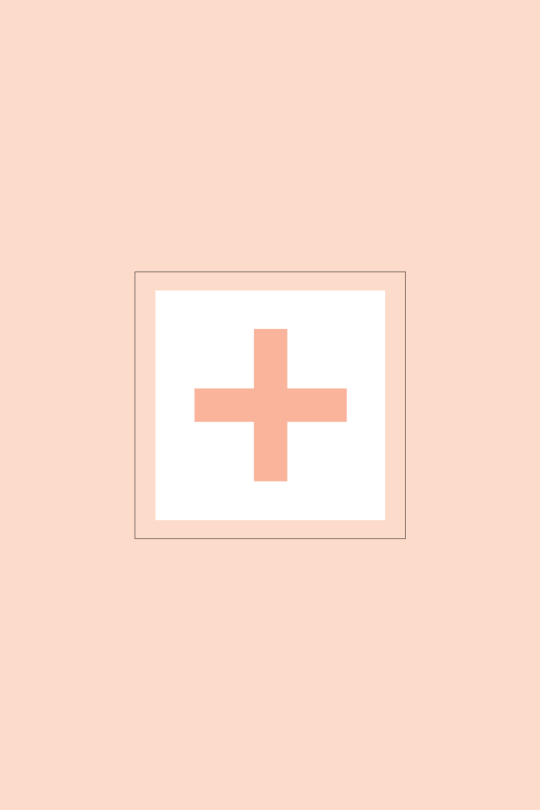
Even though it sounds like skin fairy dust, Accutane is a serious medicine. Birth defects, depression, and digestive disorders have all been named by researchers as potential side effects. There’s also the possibility of rosacea, folliculitis, and sweat-gland issues. This is why you need to be really diligent about this. Those side effects may be on the rarer side (save the birth-defects thing), but they can happen. So it’s about diving into a cost-benefit analysis on risks versus rewards.
As for pregnancy, a study by the FDA found that of 383 pregnancies during which the woman was exposed to Accutane, 42% of the births resulted in serious birth defects. Which is why the FDA is not fucking around with its regulations about making babies while on the drug. In addition to multiple DO NOT GET PREGNANT warnings on the box, each individual pill pack also features an illustration of a pregnant woman with a giant “nope” symbol right over her. Just to really hammer that point home every time you take your pill.
Related: Everything You’ve Ever Wanted To Know About Lip Injections
On the less serious side of the spectrum, you have the possibility of dry lips, nosebleeds, muscle aches, joint pain, dry eyes, increased sensitivity to the sun, and impaired night vision. Got all that? I sure did — Dr. Gross made sure it was abundantly clear that there were risks, and it was on me to both acknowledge them and adhere to the regulations around Accutane.
After this extensive, in-depth conversation, I told Dr. Gross I was ready.

Dr. Gross sent me to have a blood test to check for pregnancy and monitor my triglyceride levels and liver function — Accutane carries a risk of raising your cholesterol. The FDA does not require the liver tests, but Dr. Gross says he orders it to be tested, alongside tests on the kidney and bone marrow. “I do like to do blood tests for a person on Accutane just to make sure other things aren’t happening, like a lower white-blood-cell count. I’m very careful about my blood tests.”
I was then given an iPledge form. iPledge is a document that you and your doctor sign attesting to the fact that you will not get pregnant while on Accutane and promising to use two types of birth control. You are registered in the iPledge system, which you need to set up online, then given a basic true-or-false quiz on Accutane best practices.
When my blood test came back clean, I was prescribed a 50-milligram monthly dose. Dr. Gross notes that doses are determined by a patient’s weight — a very important point he insisted on hammering home. “Right now, doctors are giving little pills for extended periods of time and it’s wrong. If a woman weighs 120 pounds, then she needs 60 milligrams for 20 weeks — that’s how it works,” he says. “But some doctors may give a 120-pound woman a 20-milligram pill for three months. She’s never going to get cured unless you follow the technical numbers here. You don’t want to give them a low dose for an X number of months, make them look good, and they come off it and it comes right back.”
Once my prescription was filled at the pharmacy, I had a week to pick it up. After that, the prescription legally had to be returned and a new one written.
One thing I wasn’t aware of — because I stupidly didn’t fully read through my iPledge form past the “do not get pregnant” part — is that you have to log into iPledge and take a new quiz before picking up EACH prescription.
I took my pills home and prepared to start my slow march toward (hopefully) clear skin.

The very first week I took my pills, my spirits were high. I was doing something that was going to help me, finally. So I diligently popped the tablets and waited for the pimples to clear with each dose.
It was around week three that I started to see a change — and it wasn’t a good one. Remember earlier when I said I had been experiencing the worst skin of my entire life? I lied, because that was NOTHING compared to what erupted during week three. Every single pore in my face suddenly decided it hated me with a fiery passion and released whatever it had been brewing up. I had been hoping for a cure, and instead I got a curse. That preliminary bright-and-shiny hope quickly crashed and burned, and a fair amount of crying and self-pitying came in its place.
I went in for my next blood test, then counted down the few days until my appointment with Dr. Gross so I could figure out what the hell was wrong with me.

I went into Dr. Gross’ office waiting for him to realize my biggest fear; that there was something wrong, that I was one of those unlucky few whom Accutane was not going to help, and that this was my face from now on. Instead, he looked at my skin with no hint of concern and told me I was one of the cases in which it “had to get worse to get better.”
“In a certain subtype [of acne patients] on Accutane, when the oil glands are getting exposed to the person’s bloodstream with the medication for the first time,” says Dr. Gross, “the oil glands fight back a little bit and [do that] by getting inflamed.” He explains that because I am part of that subtype, my oil glands were fighting the Accutane tooth and nail, meaning I would have to grit my teeth and suffer until the drug built up enough in my bloodstream to overwhelm and quell that inflammation.
I went off with my second batch of pills and a prescription for a course of steroids (to help bring down the inflammation), still a little downtrodden, but hoping things would get better.
Gradually, in the tiniest of tiny steps, my oil glands began to stop revolting, but my complexion was still a mess and the hyperpigmentation from that initial purge had made my skin splotched and red. Concealer alone was not cutting it, so I went back to the age-old “deep side-part and smoky eye” distraction.
It was around then that the fun really began: That dryness every Accutane user and drug pamphlet had warned me about snuck up and sucker punched me in the face. Seemingly overnight, my lips became chapped and peeled.
Week three was when those dry lips finally turned into full-blown Lipageddon. The chapping and peeling spread to the corners of my mouth and the surrounding skin. When I opened my mouth, the skin would split open and I suddenly had a bloody lip. I went through many pots and tubes of lip balm until I finally stumbled on Bite’s lip mask, which offered more relief than anything else I had tried.
My skin’s dry patches, thank god, didn’t hit cracking and bleeding levels, but they were still pretty painful. All my usual acne creams and cleansers suddenly made my face burn. I switched to using honey as a cleanser and slathered Skyn Iceland’s Pure Cloud Cream on my raw skin.
I was sent off with my third batch of pills — and a newfound determination to show up at my next appointment with some type of improvement, so I could get some reassurance that this mini hell was worth it.
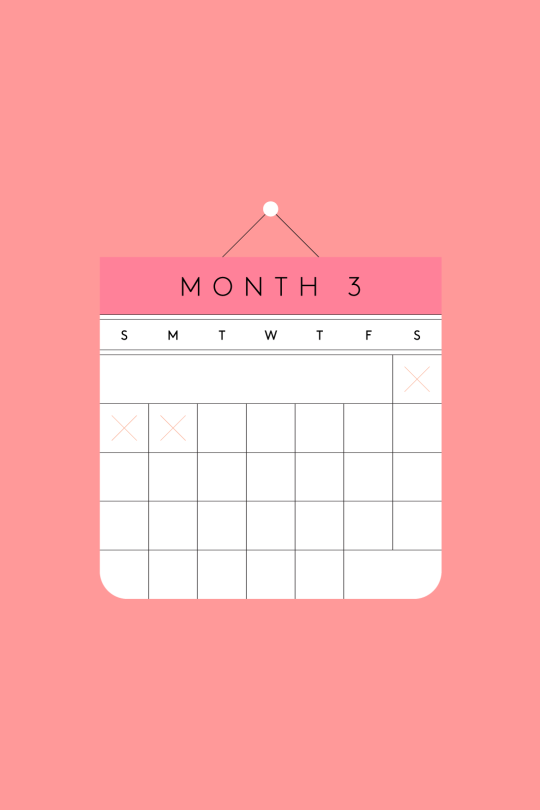
The first three weeks passed by much the same as the month prior — my lips had settled into a pattern of perpetual chapping, the skin around them was permanently red and painful, and the pigmentation was basically tattooed on my cheeks. The only difference? The pimples were finally starting to subside.
Instead of full-blown cysts, I was dealing with blackheads and whiteheads sprinkled liberally across my face. The occasional cyst did pop up on my neck and jaw, but it was on a biweekly basis. A tiny glimmer of hope reappeared.
My back and shoulders, unfortunately, were still in full riot mode. I had never had an issue with bacne before, but I now had a constellation map of zits on my shoulders, upper arms, and back. The Accutane didn’t appear to be having any effect there.
I also noticed some minor side effects: My eyes were extra dry, I started waking up with a trace of a bloody nose, and my palms began some minor peeling. And I started to feel like my joints were a bit more sore than normal. I took to using a resistance band to stretch out my hips, where the pain was centralized. It didn’t get any better, but it also didn’t get worse. So, winning?
I had been told that Accutane users’ skin is especially sensitive to the sun, but, being Irish, I was already no slouch at regular SPF dousings. I stayed out of the sun, reapplied regularly, and was generally doing great until about halfway through the month. I spent two weekends in a row poolside and while I didn’t get burned per se, my skin was red and irritated with small, painful, dry patches dotting my upper arms.
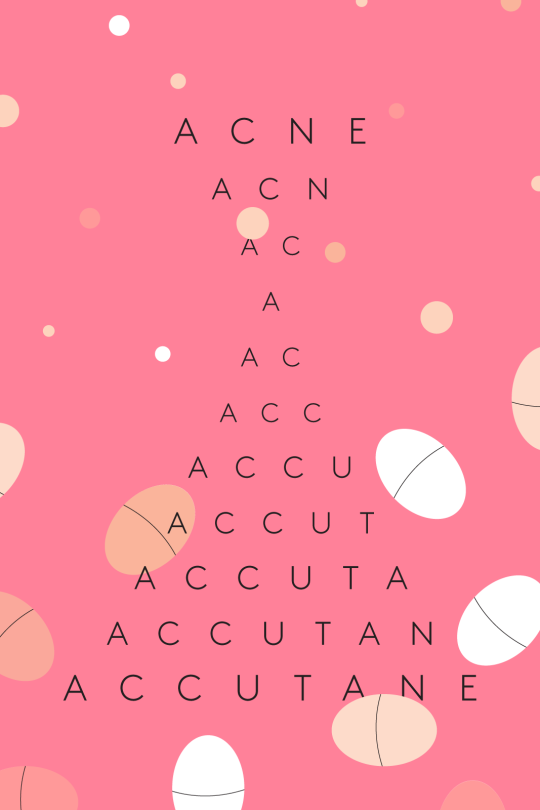
I’ve learned quite a few lessons — some harder than others. First and foremost, Accutane is not an instant fix. I hear stories from other beauty editors about going on spironolactone and how their blemishes disappeared in days. Accutane is a long-haul drug — spiro clears your skin while you are on it, but Accutane is a months-long uphill battle. That’s because it doesn’t regulate acne — it cures it. That doesn’t come with a snap of your fingers.
I’ve also been having to relearn how to take care of my skin. I’ve spent over half my life cultivating an all-star roster of oil-controlling, pimple-punishing lotions and potions, all of which are now too harsh for me. So, as my skin slowly inches into “normal” territory, I’m back to square one.
Which leads me to the importance of products. Yes, Accutane is the cure, but you need to tend to your skin while the drug is doing its job. Neglect it or abuse it, and you’ll wind up with scarring or redness.
Dr. Gross prescribed me the ultra-gentle, super-nourishing products that I used to shy away from for fear of pore-clogging. My regimen includes: honey-washing in the a.m. and p.m., Dr. Gross’ tinted Instant Radiance SPF lotion for day, Weleda’s Almond Soothing Facial Lotion four nights a week, and Weleda’s Skin Food slathered on as an overnight mask (pro tip: Smooth on a thin layer, let it sit on your skin for five minutes, and then blot with a tissue. Your sheets will thank you.).
I’m more than halfway through my journey, and am optimistic the results in September will make all of this agony feel like it had a purpose. I’ll be updating this diary to include the next two months, so be sure to check back to see how it all turned out.
Of all the articles on Accutane that I’ve read, not one has adequately conveyed just what I was getting myself into. So, if you have thought about starting or are about to start Accutane — or have already gone through it — share your questions, thoughts, hopes, dreams, and general musings on skin in the comments below. Because you don’t want to fall down the WebMD k-hole when it comes to this one.
By: Megan McIntyre